- Home
- Quizzes
- My Quiz Activity
- Newsletters
- Sports Betting
- MY FAVORITES
- Add Sports/Teams
- SPORTS
-
NFL
- NFL Home
- Arizona Cardinals
- Atlanta Falcons
- Baltimore Ravens
- Buffalo Bills
- Carolina Panthers
- Chicago Bears
- Cincinnati Bengals
- Cleveland Browns
- Dallas Cowboys
- Denver Broncos
- Detroit Lions
- Green Bay Packers
- Houston Texans
- Indianapolis Colts
- Jacksonville Jaguars
- Kansas City Chiefs
- Las Vegas Raiders
- Los Angeles Chargers
- Los Angeles Rams
- Miami Dolphins
- Minnesota Vikings
- New England Patriots
- New Orleans Saints
- New York Jets
- New York Giants
- Philadelphia Eagles
- Pittsburgh Steelers
- San Francisco 49ers
- Seattle Seahawks
- Tampa Bay Buccaneers
- Tennessee Titans
- Washington Commanders
-
MLB
- MLB Home
- Athletics
- Arizona Diamondbacks
- Atlanta Braves
- Baltimore Orioles
- Boston Red Sox
- Chicago White Sox
- Chicago Cubs
- Cincinnati Reds
- Cleveland Guardians
- Colorado Rockies
- Detroit Tigers
- Houston Astros
- Kansas City Royals
- Los Angeles Angels
- Los Angeles Dodgers
- Miami Marlins
- Milwaukee Brewers
- Minnesota Twins
- New York Yankees
- New York Mets
- Philadelphia Phillies
- Pittsburgh Pirates
- San Diego Padres
- San Francisco Giants
- Seattle Mariners
- St. Louis Cardinals
- Tampa Bay Rays
- Texas Rangers
- Toronto Blue Jays
- Washington Nationals
-
NBA
- NBA Home
- Atlanta Hawks
- Boston Celtics
- Brooklyn Nets
- Charlotte Hornets
- Chicago Bulls
- Cleveland Cavaliers
- Dallas Mavericks
- Denver Nuggets
- Detroit Pistons
- Golden State Warriors
- Houston Rockets
- Indiana Pacers
- Los Angeles Clippers
- Los Angeles Lakers
- Memphis Grizzlies
- Miami Heat
- Milwaukee Bucks
- Minnesota Timberwolves
- New Orleans Pelicans
- New York Knicks
- Oklahoma City Thunder
- Orlando Magic
- Philadelphia 76ers
- Phoenix Suns
- Portland Trail Blazers
- Sacramento Kings
- San Antonio Spurs
- Toronto Raptors
- Utah Jazz
- Washington Wizards
-
NHL
- NHL Home
- Anaheim Ducks
- Boston Bruins
- Buffalo Sabres
- Calgary Flames
- Carolina Hurricanes
- Chicago Blackhawks
- Colorado Avalanche
- Columbus Blue Jackets
- Dallas Stars
- Detroit Red Wings
- Edmonton Oilers
- Florida Panthers
- Los Angeles Kings
- Minnesota Wild
- Montreal Canadiens
- Nashville Predators
- New Jersey Devils
- New York Islanders
- New York Rangers
- Ottawa Senators
- Philadelphia Flyers
- Pittsburgh Penguins
- San Jose Sharks
- Seattle Kraken
- St. Louis Blues
- Tampa Bay Lightning
- Toronto Maple Leafs
- Utah Hockey Club
- Vancouver Canucks
- Vegas Golden Knights
- Washington Capitals
- Winnipeg Jets
- NCAAF
- NCAAM
- Olympics
- Boxing
- Entertainment
- Lifestyle
- Golf
- MMA
- Soccer
- Tennis
- Wrestling
- More Sports
- RESOURCES
- My Account
- YB on Facebook
- YB on Twitter
- YB on Flipboard
- Contact Us
- Privacy Policy
- Terms of Service
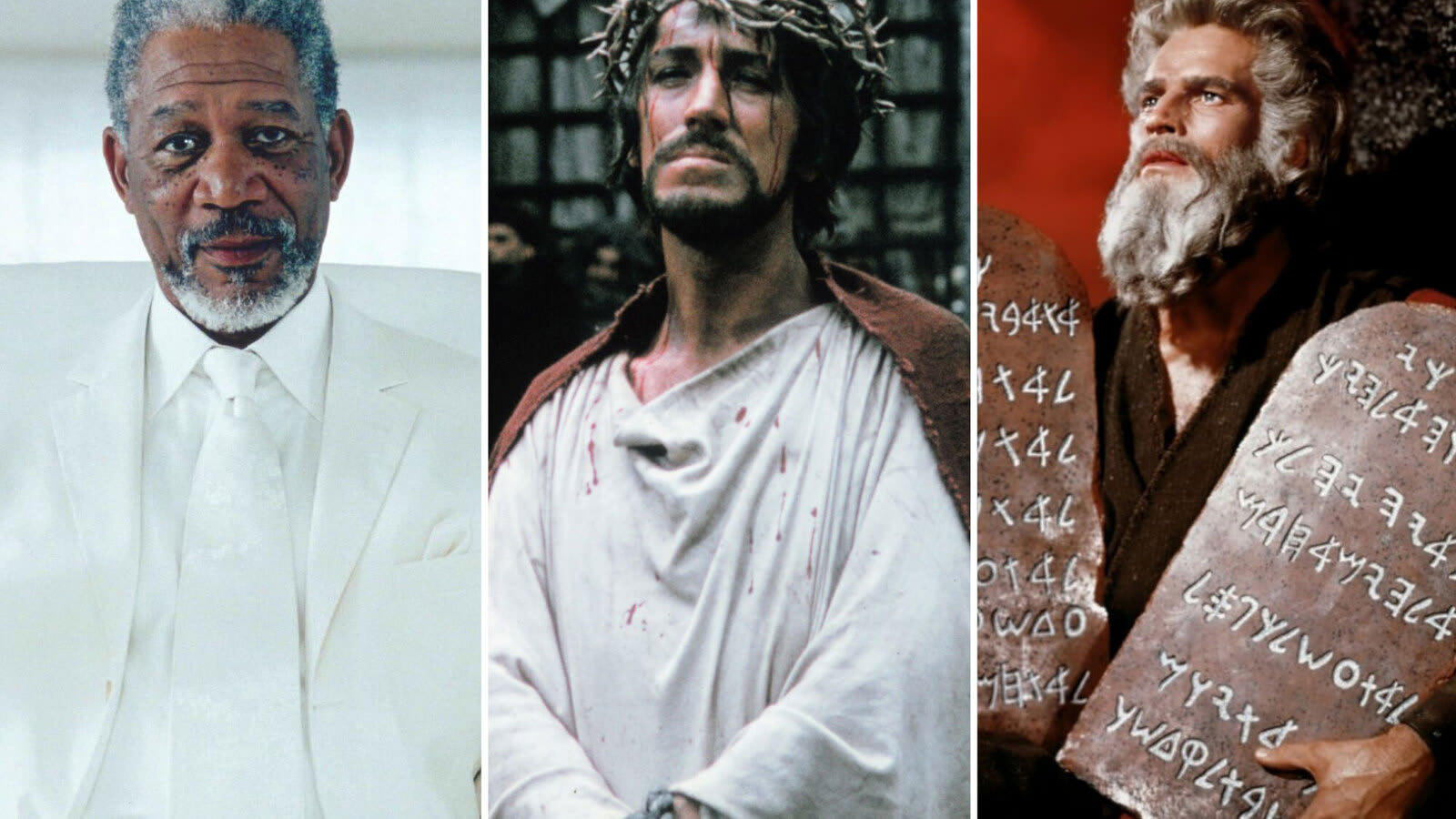
The 20 most memorable depictions of God in films
God is almost impossible to render in a way that doesn’t seem limiting or downright blasphemous. Despite this, several movies have actually sought to depict this figure in one way or another, often with reverence but sometimes with comedy and sometimes outright mockery. Moreover, there are also several films in which God doesn’t actually appear but still manages to influence the actions and beliefs of the characters. As such, the figure of God has proved to be remarkably powerful in the movies, showing how faith shapes one’s perception of the world.
'Super'

James Gunn has repeatedly shown that he is one of his generation’s most fascinating filmmakers, and he has an interesting take on God in his film Super. Anyone who has seen the film can never forget the moment when God grants the main character, Frank Darbo, with powers. In this case, the power actually comes from tentacles rather than, say, a bolt of lightning, and the decision to film the whole thing like something out of a horror movie is definitely something that one would expect from a director like Gunn.
'The Young Messiah'

Even though Anne Rice was more famous for writing about vampires, she also made a turn into writing a series of novels about the young life of Jesus. The Young Messiah is based on the first of these novels, and it does a skillful job of blending accounts of Jesus’ youth from both the traditional gospels and apocryphal sources. What’s more, it takes account of historical authenticity, and the result is a film that manages to be devout and richly imagined.
'Letters to God'

Letters to God is designed to tug at the heartstrings, focusing on a boy with cancer who believes in Jesus and sends letters addressed to God. It hits all of the notes that one would expect of a film of this type since it’s clear that Tyler’s powerful faith positively impacts everyone around him. Even though God doesn’t directly appear in this film, Letters to God is nevertheless a moving testament to the power of faith to change lives and positively impact the world.
'Oh God! You Devil'

It took a few years, but the Oh, God! franchise finally got a fourth installment with Oh God! You Devil. Once again, George Burns plays God, but this time he does double duty, also portraying the Devil. The two essentially compete with one another for the soul of human musician Bobby Shelton. It’s always a pleasure to see Burns in the role that he seems to have been born to play, and the film actually has a little more plot than its immediate predecessor. All of this adds up to a fun little outing.
'Oh, God! Book II'

George Burns proved he was game for anything when he returned to the Oh, God! series for a second outing as God himself. The film follows a similar trajectory as the first one, though God’s chosen intermediary is a young girl in this case. This might be a bit more of the same, but there’s no question that Burns is a rascally delight as the titular deity, and the film is worth watching for his performance and its rather zany sense of humor.
Bruce Almighty

Morgan Freeman and Jim Carrey make for an unlikely comedic duo in Bruce Almighty, in which Freeman plays God and Jim Carrey plays the unfortunate mortal tasked with taking over the duties of the divine. Freeman is inspired casting, endowing the Almighty with a certain playfulness in keeping with the film’s overall ethos. While the film is undoubtedly quite silly, it raises some interesting questions about the nature of divine power and how humanity may never be ready for the burdens of godhead.
'Evan Almighty'

The success of Bruce Almighty inevitably meant that there was going to be a sequel, and the result is Evan Almighty . Once again, there’s a human who is blessed with God’s presence, and in this case, Steve Carell’s Evan must build Noah’s Ark. As with the first film, Morgan Freeman lends his tremendous screen presence to God, showing once again how his presence can elevate any film. It may not be quite as funny as its predecessor, but it’s still a pleasure to see Carell and Freeman together, and the film also boasts some remarkable special effects.
'The Brand New Testament'

It takes a very brave film to make God a main character, but this is exactly what happens in The Brand New Testament. The real heart of the story, however, is God’s daughter Ea, who decides to rebel against his tyranny and sadism and forge a New Testament to save humanity (along with her brother Jesus). All of this is presented through a very modern lens, and it’s this incongruous approach to its story that makes the whole film such a strange and perplexing delight.
'The Greatest Story Ever Told'

Directed by George Stevens, The Greatest Story Ever Told was one of the last big-budget spectaculars of the 1950s and 1960s. Though it is sometimes distractingly stuffed with stars, including John Wayne, who plays a Roman centurion, it still manages to be a hauntingly melancholic and spiritual movie, thanks in no small part to Max von Sydow’s performance as Jesus. Though it can be heavy going at times, there’s no question that Stevens approached the material with reference for both God and Jesus firmly in mind.
'Almost an Angel'

If there’s one actor who could convincingly play God, it would surely have been Charlton Heston, who by 1990 — when Almost an Angel was released — had appeared in many biblical epics of the 1950s and 1960s. In this film, he takes a thief under his wing and gives him a second chance to make good, all in the effort to make him suitable material for being an angel. The film is pure early ‘90s sentimentality, and therein lies its charm (as well as the charismatic performance given by Paul Hogan).
'King of Kings'

Nicholas Ray directed King of Kings, a biblical spectacular that focuses on the life and ministry of Jesus, who, in Christian theology, is God made flesh. Ray takes great pains to situate Jesus in his historical milieu, showing how his ministry unfolded against the backdrop of the tyranny of the Roman Empire. Jeffrey Hunter brings a movie star beauty to the figure of Jesus, and Ray’s stylistic impulses are displayed throughout the film. It’s one of the rare films that seems to have some reverence for the New Testament, perhaps explaining its re-evaluation over the past several decades.
'God’s Not Dead'

What the film God’s Not Dead lacks in subtlety, it more than makes up for in faith. Its story about a young evangelical Christian student who stands up to the forces of atheism at a university sometimes becomes a bit strident, but it nevertheless wears its heart on its sleeve. Moreover, its success at the box office suggests that there is still an audience that’s hungry for on-screen depictions of faith in which religious observance is treated seriously and with earnestness rather than cynical mockery.
'A Little Bit of Heaven'

Whoopi Goldberg is one of those actresses who has repeatedly proved just how versatile she is, but she really outdoes herself in A Little Bit of Heaven. This is the film, after all, in which she plays no less a figure than God, who visits Kate Hudson’s Marley Corbett after she is diagnosed with terminal cancer. Though she’s only on-screen for a relatively brief period, it’s still a soulful performance from Goldberg, which is very much in keeping with the film’s general melancholic and bittersweet tone.
'The Prince of Egypt'
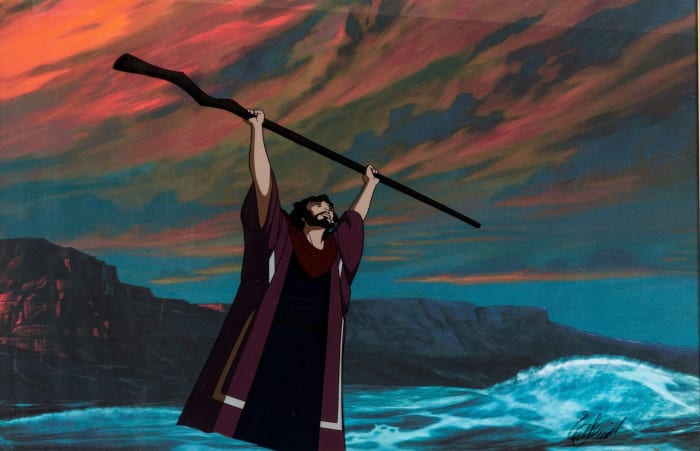
Much like The Ten Commandments — from which it borrows much of its plot — The Prince of Egypt focuses on the prophet Moses (voiced here by Val Kilmer). The film is, as a whole, a masterpiece of animation and a demonstration of DreamWorks' ambitions as a studio. Given its subject matter, it also features a number of potent signs of God’s existence, whether it’s Moses encountering the divine in the burning bush or God sending down the plagues of Egypt. This is, at root, a film all about the power of faith.
'The Ten Commandments'

As its title suggests, Cecil B. DeMille’s The Ten Commandments focuses on Charlton Heston’s Moses and his journey from a prince of Egypt to the liberator of the Hebrews. As in the biblical account, God plays a major role in the story, first by appearing in the burning bush and then by delivering the Ten Commandments to Moses on Mount Sinai. The film shows the extent to which the presence of God is understood in Judaism and Christianity as a key historical force that can change the destinies of both individuals and nations.
'Dogma'
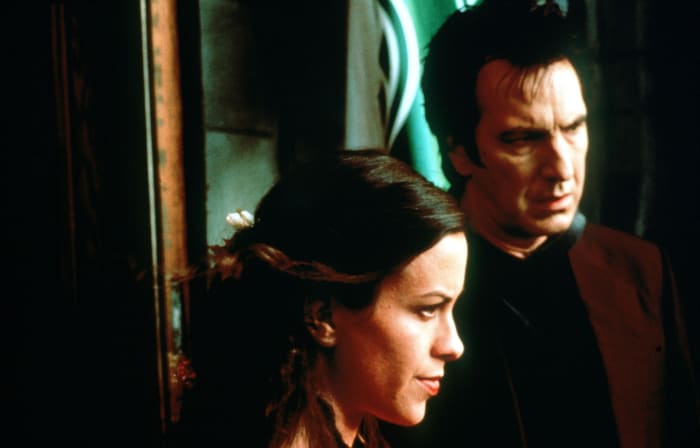
Kevin Smith turns his sarcastic filmmaking vision to Dogma, which focuses on a pair of angels who scheme to get back into Heaven, even though doing so could undo all of creation. It’s the kind of film that goes out of its way to be sacrilegious, but therein lies its brilliance. Moreover, it also features a notable appearance from singer Alanis Morissette as God, who spends most of the film trapped in the body of a wounded mortal. This is one of those films that really asks important religious and theological questions, even as it never loses sight of its own sense of humor.
'The Bible: In the Beginning'
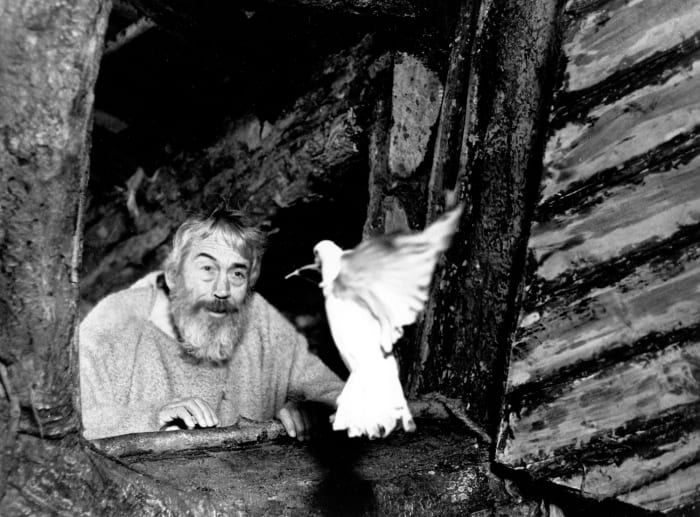
The Bible: In the Beginning is one of the very last big-budget epics that were a key part of Hollywood in the 1950s and 1960s. Adapting the first stories of Genesis, it depicts various important stories including Adam and Eve, The Tower of Babel, Noah and the Ark, and Abraham and Isaac. God is present throughout these tales, and the film finds a balance between the sacred and the worldly. It also features several remarkable actors in major roles, including John Huston, George C. Scott, and Ava Gardner.
'The Passion of the Christ'
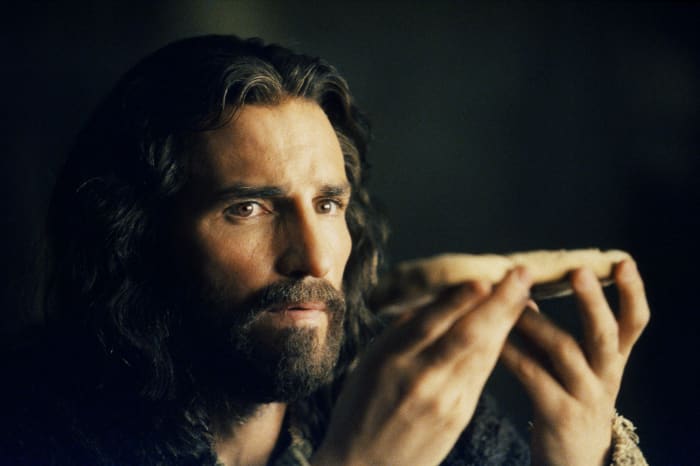
Mel Gibson arguably made his most important film with The Passion of the Christ. As its title suggests, it focuses on the days leading up to the Crucifixion, with Jim Caviezel playing the part of Christ. Rather infamously, the film doesn’t shy away from the blood, gore, and brutality involved with Jesus’ death on the cross. More than anything else, the film really does show the extent to which, in Christian theology, God is understood to have become flesh to experience humanity and to invite humankind to embrace some measure of the divine.
'The Chronicles of Narnia: The Lion, the Witch and the Wardrobe'

Based on the beloved novel by C.S. Lewis, The Chronicles of Narnia: The Lion, the Witch and the Wardrobe is at first a story about four children and their adventures in the magical land of Narnia. At bottom, however, the film, like the book, is an allegory about Christianity itself, with the character of Aslan the lion standing in for both God and Christ (he is even sacrificed and brought back to life). While the allegory itself might be a bit heavy-handed at times, the film is undoubtedly a stirring piece of epic filmmaking.
'Oh, God!'

Veteran comedian George Burns stars as God in the film Oh, God!, which was directed by Rob Reiner. John Denver is charming as a modern man who gets enlisted by God to be a prophet for the 20th century. A lazier movie would have made more comedy out of skewering religion, but instead, this film aims for a less caustic, but no less hilarious, form of farce. It’s easy to see why it became a remarkable success, and it went on to spawn an entire series of sequels.
Thomas J. West III earned a PhD in film and screen studies from Syracuse University in 2018. His writing on film and TV has appeared at Screen Rant, Screenology, FanFare, Primetimer, Cinemania, and in a number of scholarly journals and edited collections
More must-reads:
- 23 TV characters who simply vanished without a trace
- The 25 most memorable closing tracks in music history
- 25 stars who walked away from the limelight
- The 20 worst coworkers in movie history
- 20 TV couples that became legendary when they finally got together
Breaking News
Customize Your Newsletter
 +
+
Get the latest news and rumors, customized to your favorite sports and teams. Emailed daily. Always free!
PRIVACY POLICY EDITORIAL POLICY CONTACT US
ABOUT YARDBARKER TERMS OF SERVICE
Use of this website (including any and all parts and
components) constitutes your acceptance of these
Terms of Service and Privacy Policy.
This site is for entertainment purposes only.
There is no gambling offered on this site.
Gambling Problem? Call 1-800-Gambler.
